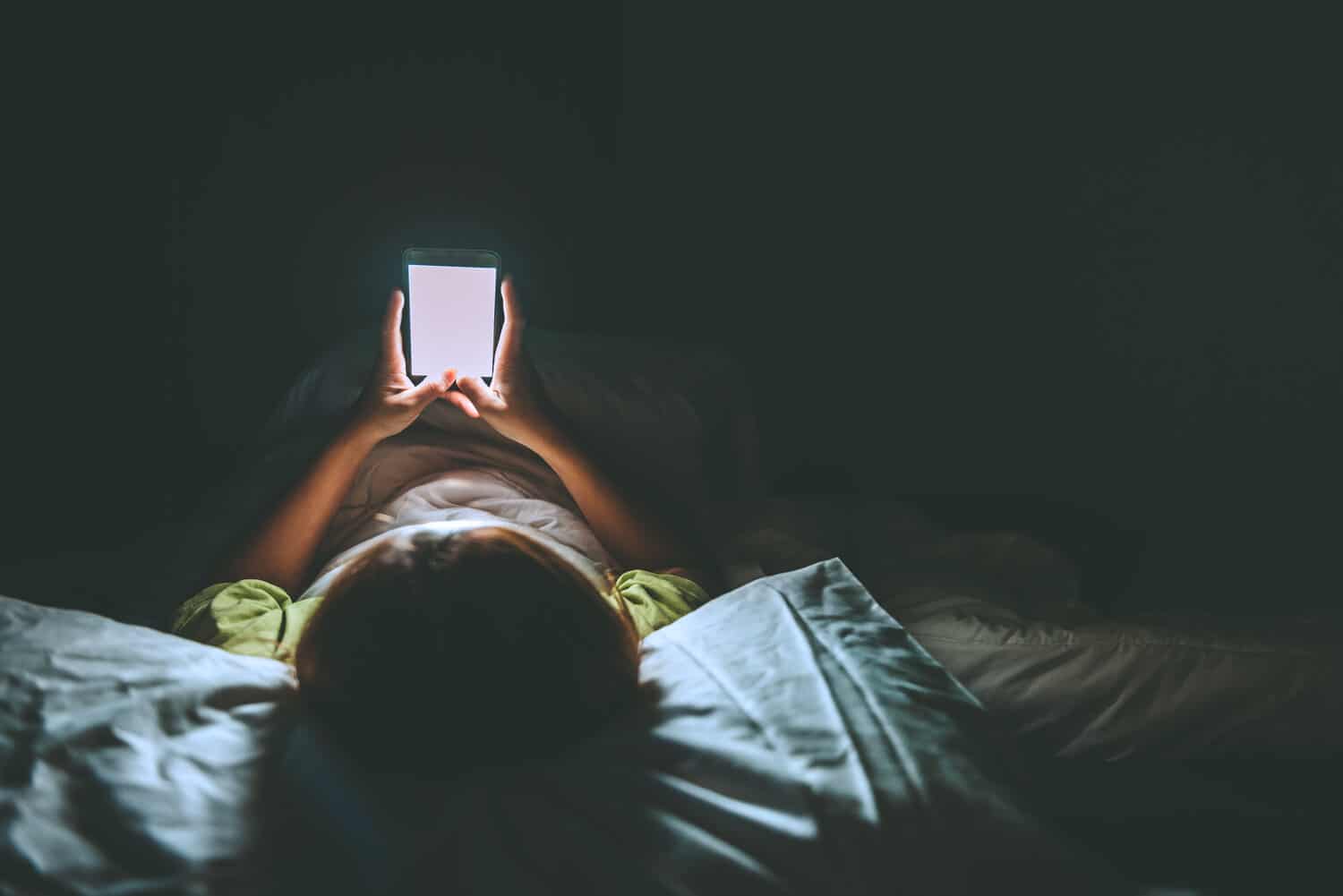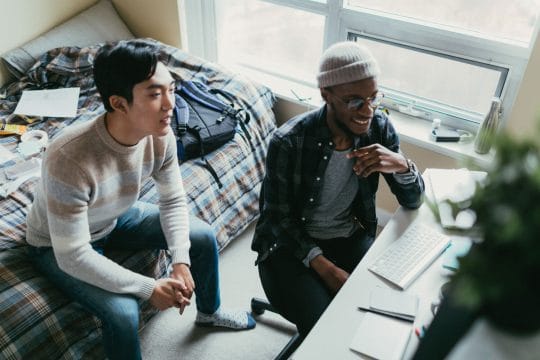- Your cart is empty
- Continue Shopping
How Does Screen Time Impact Sleep?

From Zoom work meetings to online learning to virtual hangouts, this year has been the year of online communication. During 2020, we have spent more time staring at our devices than ever before.
Let’s face it: screen time has become a huge part of our society. While the power of technology and virtual communication has many pros, it also has its consequences, such as its impact on sleep patterns. We have been taught to protect our eyes from harmful UV rays emitted by the sun, but what about blue light emitted by our devices?
Harm of blue light
Phones, computers, tablets, and other devices emit an artificial blue light when in use. This light can suppress the release of melatonin, which is the body’s sleep-inducing hormone.
Exposing yourself to blue light, especially right before bed time, can interfere with the body’s circadian rhythm. This sends mixed signals to your brain for when it is time to wake up and time to go to sleep, which can impact how long it takes to fall and stay asleep.
How to reset
It is important to limit the amount of daily screen time we expose ourselves to so we are aware of how blue light consumption is impacting sleep patterns.
Yes, there are benefits to innovative technology and the tech world. However, sleep should be a priority. Below are a few practical tips on how to ditch our devices and put sleep first.
Set a digital curfew
Do you scroll your phone right before bed or even while lying in bed? Do you watch your favorite Netflix show minutes before crawling into your sheets?
One of the best ways to avoid these unhealthy sleep patterns is to set a curfew for your digital devices. Pick a time you are going to go off the grid, and stick with it. Turn your notifications off, go on “Do Not Disturb” mode or even turn off your devices completely.
Instead of scrolling, grab a book, read a magazine or simply decompress in the stillness of the night. Put your devices away, and allow your brain the opportunity to go into sleep mode.
Designate your tech space
Take a moment and think about where your work from home space is set up, where your TVs are stationed throughout your home, and where you leave your devices at the end of the night. Are these all located in your bedroom? If so, you may want to consider rearranging.
Designating a room or space helps program your brain to understand that area’s specific purpose. While setting your digital curfew is important, eliminating the temptation surely doesn’t hurt. Therefore, it is important to create a space in your home where you check emails, take your virtual calls and scroll through social media platforms.
Create a sleep-worthy atmosphere
Once your tech space has been designated, you must also designate your sleep space.
It is important to create a sleep-worthy bedroom so your brain understands its purpose: to get a good night’s rest.
Consider investing in a new mattress, painting your bedroom walls a soothing color or even purchasing a new pillow for maximum comfort. Create a space where you can unwind and relax before bed. Your sleep is important, so your bedroom should reflect its value.
If you are feeling stuck and need suggestions on how to improve your sleep space, our team a Mattress Man is here to help create an atmosphere designed for a good night’s rest.





